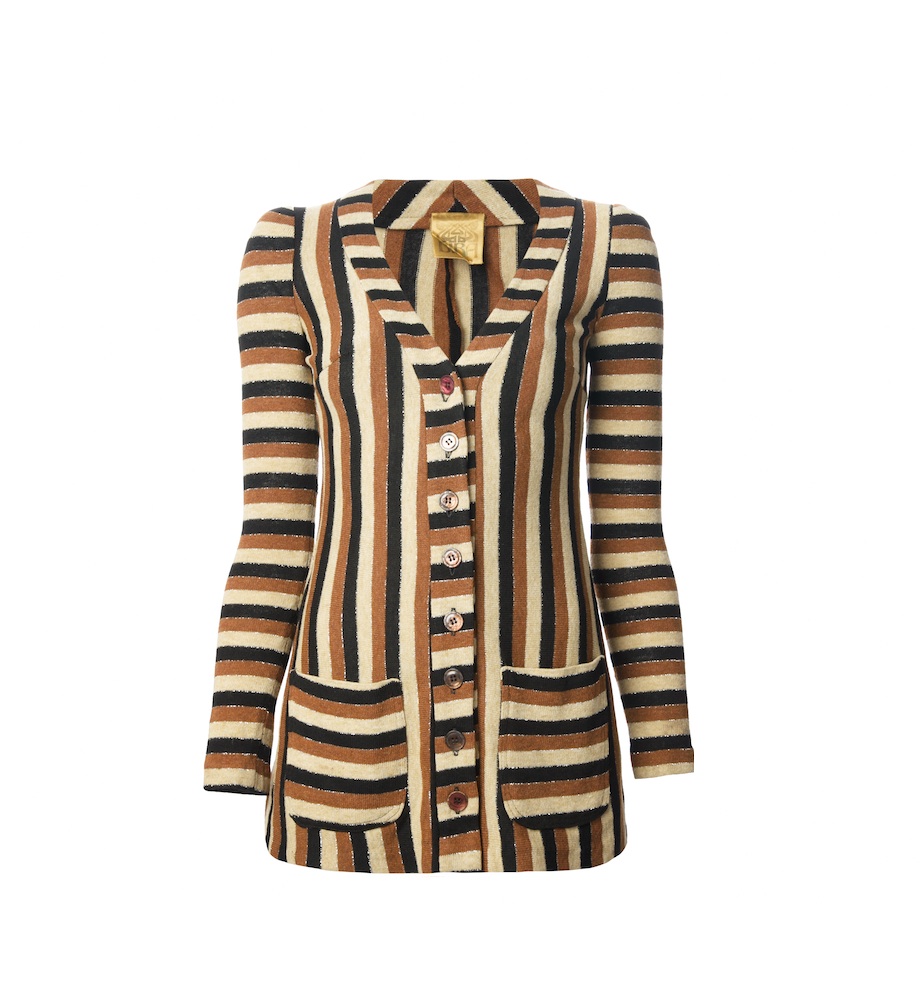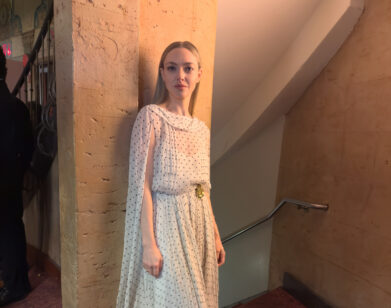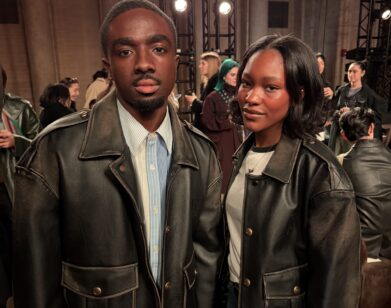Back to Biba
With a clientele that ran the gamut from city scenesters to Brigitte Bardot, Biba was a notorious high street fixture during the ’60s and ’70s. Founded in London in 1964 by Barbara Hulanicki, the women’s clothing shop rapidly ascended the fashion world and evolved into a department store by 1974. It evoked the Art Deco fixation of the era with its black and gold logo, and it frequently appeared in press worn by stars like Twiggy and Marianne Faithfull.
But in 1975, Hulanicki parted ways with her shop, leaving the business to crumble. Several campaigns were launched to revitalize the brand, but to no avail. For decades, Hulanicki’s original Biba garments have remained iconic in name and look, albeit inaccessible to modern consumers.
This week, however, Biba is re-entering the public sphere. London-based vintage collector Pari has been amassing a wardrobe of Biba pieces since she first came into contact with the brand in the ’80s. “I was wandering around a famous vintage market in London and noticed a very fitted brown double breasted jacket with slightly raised shoulders modeled by a dummy,” she says of her first encounter with Biba. “It was so different and spectacular.” Now, Pari has teamed up with online retailer Farfetch and Los Angeles-based vintage shop Decades to bring the Biba look to a worldwide audience in celebration of the brand’s 50th anniversary. The online and in-store sale includes some of the most notable pieces in Biba’s short but remarkable history, such as a leopard-print blazer and whimsically patterned pantsuits. “All of the pieces have a history, and they are continuing on their journey,” says Farfetch CMO Stephanie Horton. “Biba perfected lifestyle retail in the late 1960s and drew from the past for inspiration to create a very definitive look that once again is inspiring us today,” adds Decades founder and owner Cameron Silver.
The Biba woman as described by Pari, Silver, and Horton certainly has relevance today. She’s “iconic in her own right,” Horton proclaims. “Fiercely feminine,” continues Silver, “with a touch of mystery and effortlessly seductive.” The collection of hundreds of items now available for sale on Farfetch epitomizes the Biba aesthetic, with its feminine color scheme of fruity mulberry, blueberry, and plum and its universally flattering silhouette crafted for the cosmopolitan woman. “If you wore Biba, you were the it-girl,” says Pari.
FOR MORE INFORMATION, VISIT THE FARFETCH WEBSITE.







